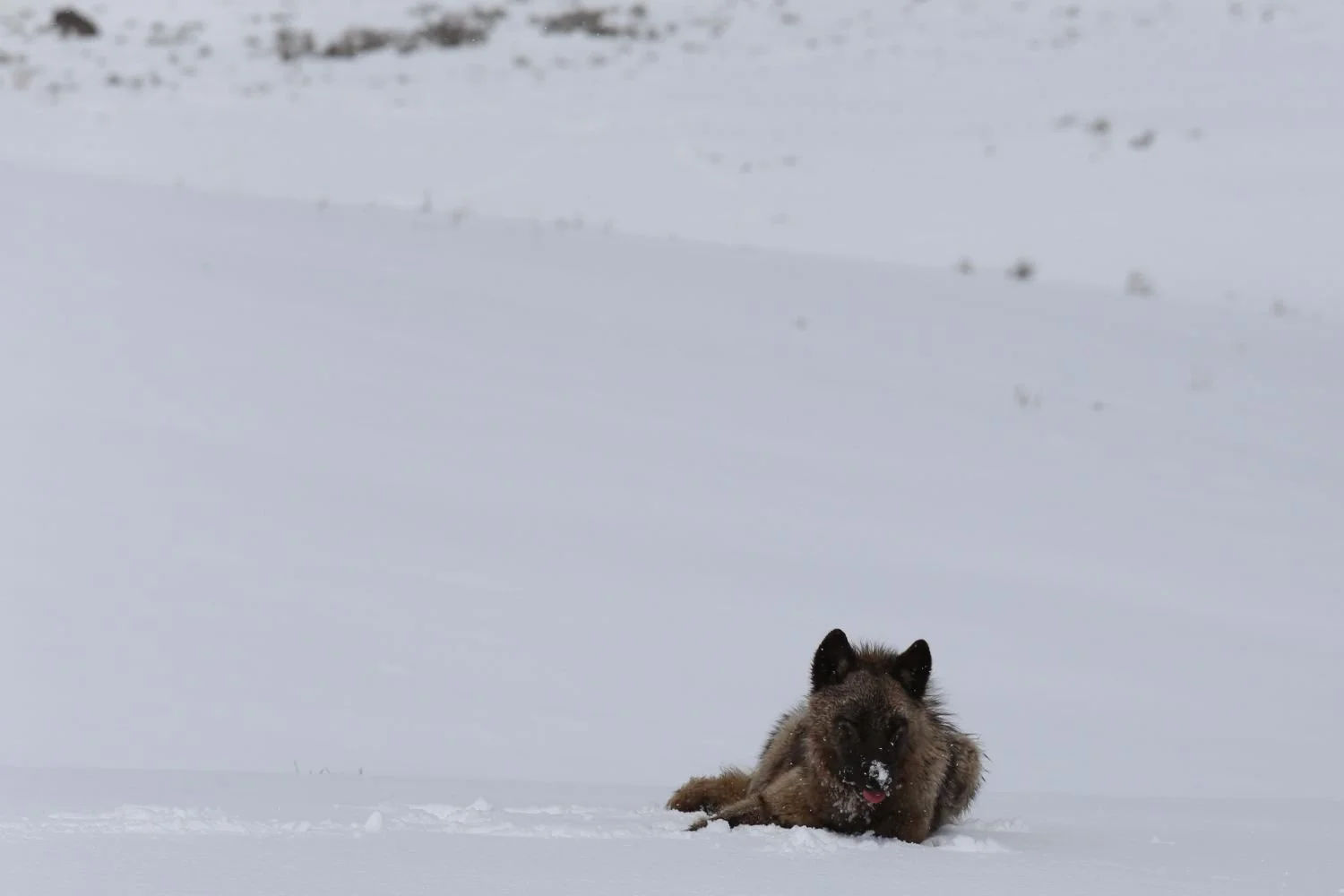Opportunity to testify on three bills that have potential to harm wildlife in Montana
I'm writing today with an update on the Montana legislative session, and an update for you to make a difference on behalf of wildlife.
Your voice is incredibly important when it comes to wildlife issues in Montana. As people in Park County, we live alongside grizzly bears, wolves and other species every day. We know how to coexist with our wild neighbors and what they mean to our community.
We need to tell the Montana legislature that wildlife matter for their own sake and don't deserve malicious bills that limit their ability to continue to survive.
Three bad wildlife bills will be heard this Thursday in the House Fish, Wildlife and Parks Committee at 3 p.m. These bills, all sponsored by Representative Paul Fielder, are bad news for wolves, bears and other wildlife, plus public lands users and their pets. These bills are mostly tailoring state laws to cater to the less than .5% of Montanans that buy trapping licenses.
You can testify in person or virtually.
These bills will be heard Thursday, after the Rally for Public Lands at the Capitol Rotunda at noon. You can learn more about the event and RSVP here.
If you’re attending the rally, this would be a great time to testify in person.
If you will not be in Helena on Thursday, you can still testify either virtually or by submitting a written public comment. To do this, you must sign up to testify virtually or submit public comment by 5 p.m. on Wednesday at this link: https://leg.mt.gov/public-testimony/
Two of the bills are an attempt to take away power from the Montana Fish and Game Commission, which have opted to limit the scope of some of the legislature’s worst bills from the last session in setting seasons and limits.
It would be useful to testify that the Fish and Game Commission should be the final say in harvest seasons, rather than the legislature, because they can rely on the best available science, economic impact and other concerns.
It’s also important for the Montana legislature to understand that trapping can be unsafe for people and their pets, as well as for endangered species. Already, the U.S. Fish and Wildlife Service has warned that excessive trapping in grizzly bear and Canada lynx can impact these species and that mortality of these species can impact whether they are considered “recovered.”
Here’s a quick description of the bills.
HB 627, Makes it a requirement that wolf trapping must include the use of snares outside of existing grizzly bear recovery zones and lynx protection zones. Last session, the legislature passed Fielder’s HB 224, which brought back the use of snares as part of wolf trapping. The Commission somewhat limited the geographic scope of snaring areas, mostly due to concerns about grizzly bears. This new bill removes commission authority and pushes even further than HB 224 to say where snaring must be allowed. This is concerning for all kinds of wildlife — including grizzly bears that could end up in these snares — as well as creating dangerous situations for wildlife managers and for people recreating on public lands and with their dogs.
HB 628, Makes it a requirement that the commission must allow a wolf trapping season between the first Monday after Thanksgiving and March 15. Last session, the Legislature passed Fielder’s HB 225, which allowed the commission to extend the trapping season at their discretion and with regional adjustments. This new bill further strips away the commission’s ability to adapt trapping season or to tailor the needs regionally and locally. This is a terrible approach to wildlife management and further threatens grizzly bears who will be more likely to encounter traps beyond hibernation.
HB630, Expands opportunities to hunt bears using dogs by allowing a training season from the end of spring through June and allowing this practice outside of existing grizzly bear recovery zones.
Let me know if you have any other questions about the bills or need any assistance with talking points. You can email me at Karrie@pcecmt.org.

